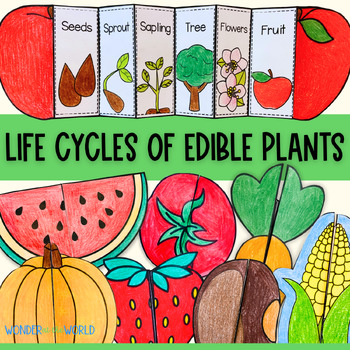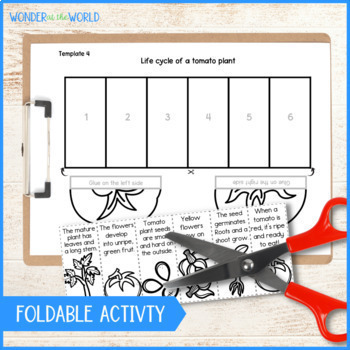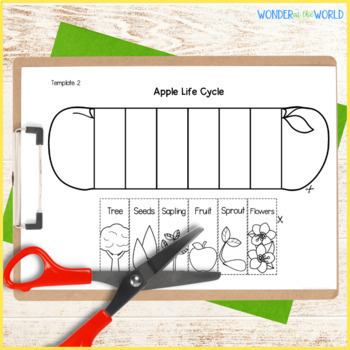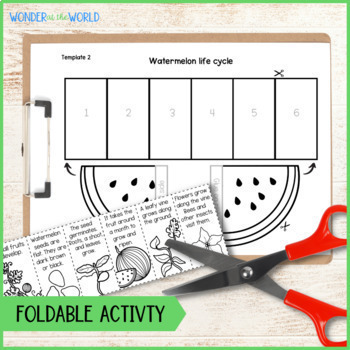Life cycles of edible plants foldable sequencing activities big bundle
Wonder at the World
1.9k Followers
Grade Levels
1st - 3rd
Subjects
Resource Type
Standards
NGSS3-LS1-1
Formats Included
- Zip
Pages
80+
Wonder at the World
1.9k Followers
What educators are saying
My students LOVED this! I printed a bunch of choices and let them pick one, but they all asked to do them all! I thought for sure 4th grade would think this was a "baby-ish" activity but they had an absolute blast! Thank you so much for creating these! :)
Products in this Bundle (8)
showing 1-5 of 8 products
Description
This low-prep science resource is a bundle of 8 foldable sequencing activities for plants we eat. These life cycle cut-and-paste printables are ideal for interactive notebooks, and for supporting learning about flowering plants, fruits, similarities and differences between life cycles or seasonal changes.
The plants included are:
- Bean
- Watermelon
- Pumpkin
- Corn
- Apple
- Tomato
- Strawberry
- Carrot
Each plant has differentiated template options. These include options to sequence the life cycle stages with single words, or with descriptions.
To complete these activities, students will need colored pens/pencils, scissors, and glue.
The watermelon, tomato, corn, carrot, and apple set also have an additional set of sequencing cards to use for a center or small group activity.
Total Pages
80+
Answer Key
N/A
Teaching Duration
N/A
Report this resource to TPT
Reported resources will be reviewed by our team. Report this resource to let us know if this resource violates TPT’s content guidelines.
Standards
to see state-specific standards (only available in the US).
NGSS3-LS1-1
Develop models to describe that organisms have unique and diverse life cycles but all have in common birth, growth, reproduction, and death. Changes organisms go through during their life form a pattern. Assessment of plant life cycles is limited to those of flowering plants. Assessment does not include details of human reproduction.





